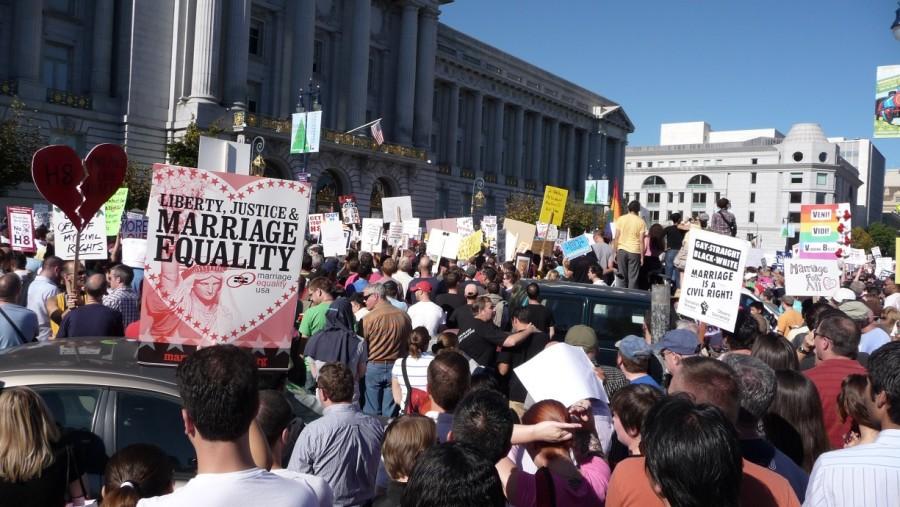Is it religious freedom or discrimination?
Google image/Creative Commons license
The same-sex marriage issue is at the heart of most current “religious freedom” laws.
Many states around the country are enacting “religious freedom” laws that allow people to refuse service to anyone if they feel that it is tied to observing their sacred beliefs.
The AMSA Voice spoke with two history teachers, Jessica Bowen and department chair Dr. Anders Lewis, about the issue. Dr. Lewis said that in order to understand the situation, people need to recognize what is going on behind the scenes.
“My sense is that most of this is being done by the Republican Party,” he said.
And he believes that there is a reason why the Republicans are behind the movement. “One of the core constituencies has been the evangelical Christians,” Dr. Lewis said. Of the people who favor these religious laws, “they are not all conservative, but many evangelical Christians are.”
The Republicans Party is largely built upon the support of evangelicals.
“This is the Republicans Party’s way of pandering to evangelical Christians by creating these laws,” Dr. Lewis said.
There is a fine line when it comes to discriminating. Mrs. Bowen mentioned an example that is a current favorite among debaters of the topic: Is it right for a baker to refuse making a wedding cake for a gay couple’s reception if he feels it violates his religious beliefs?
“There are instances businesses can discriminate,” Mrs. Bowen said.
If a person came into a bar drunk and disruptive, the business can deny service, she explained. That is a kind of discrimination.
And then there are laws that prohibit discrimination in other cases.
“The Supreme Court has generally said government can force you to not discriminate for things like race or gender,” Mrs. Bowen said. After all, you are born that way and cannot choose the color of your skin.
But there are some people who do not see homosexuality as something people are born with, in which case it can’t be a civil rights issue.
So does the government have the authority to force people to do something that they feel doesn’t meet the principles of their faith?
“Religious ideas should not trump our civil laws,” Dr. Lewis said. “We are a secular society.”
Mrs. Bowen agreed.
“The Supreme Court will say marriage is a civil right,” she speculated, referring to the Court’s current deliberation of same-sex marriage. “Marriage is such an important part of someone’s life.”
Yet many feel that these religious laws adhere to the First Amendment and thus, by prohibiting freedom of religion, people’s civil rights are violated.
“Couldn’t disagree more,” Dr. Lewis said. “The purpose of the First Amendment was to prevent the government favoring one religion over another.”
But what a lot of people do not realize is that there are two clauses to the First Amendment. The first is what Dr. Lewis mentioned.
“The second is the government cannot prevent the free exercise of religion,” Mrs. Bowen said.
So, where do you draw the line? If it is part of your religion to refute a certain trait or belief, is it right for the government to force you into a practice to prevent discrimination?
Unfortunately, it seems at the moment that there can’t be one solution that satisfies all members of society.

Anagha Indic is one of two co-editors for The AMSA Voice and a member of the Class of 2015. Anagha is an avid learner in pursuit of an engineering career.
She...






